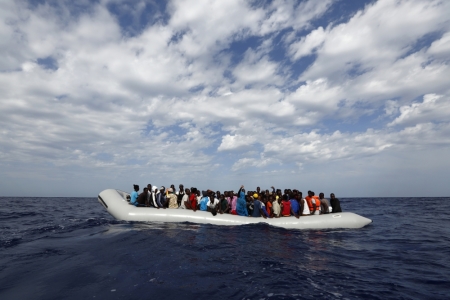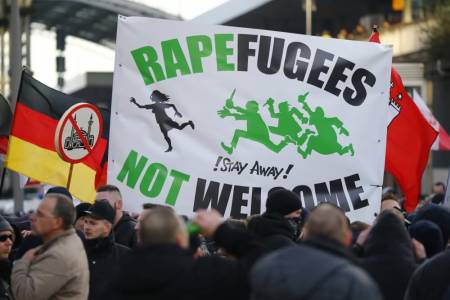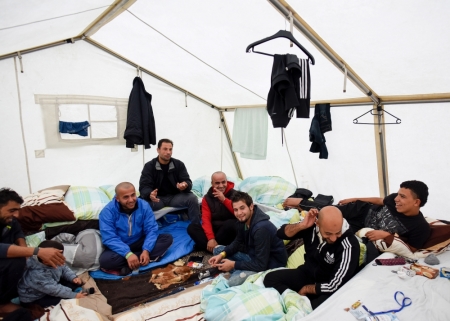Pope Francis Says EU Leaders Must Welcome Refugees, Despite Security Concerns

World leaders need to continue their compassion toward migrants despite concerns of national security, Pope Francis said Monday.
Speaking in his annual address to the diplomatic corps of the Holy See, Francis argued it's possible for European countries to accept migrants without sacrificing their national security or culture, saying that global leaders must "overcome the inevitable fears associated with this massive and formidable phenomenon."
The pope went on to argue that the recent, massive influx of migrants from primarily Syria, Afghanistan and Iraq to European countries "seems to be undermining the foundations of that 'humanistic spirit' which Europe has always loved and defended."
The pontiff is likely referencing recent concerns brought by the European Union regarding the massive influx of migrants to European countries and the possible affect of this inflow on the security of member nations.
Anti-migrant sentiment has been growing among European civilians as well, with thousands of Germans gathering in Dresden in recent months for anti-migrant protests, as well as Italian citizens in Treviso burning mattresses and televisions meant for newly-arrived immigrant families.

In his address, which is delivered every January from the Vatican, the pope suggested that European leaders must find "the right balance between its two-fold moral responsibility to protect the rights of its citizens and to ensure assistance and acceptance to migrants."
Pope Francis also warned that European countries must not allow preconceived notions regarding religious fundamentalism to breed a culture of "fear" against foreign migrants.
"Extremism and fundamentalism find fertile soil not only in the exploitation of religion for purposes of power, but also in the vacuum of ideals and the loss of identity — including religious identity — which dramatically marks the so-called West. This vacuum gives rise to the fear which leads to seeing the other as a threat and an enemy, to closed-mindedness and intransigence in defending preconceived notions," the pope told the diplomats.
Taking an optimistic turn, Francis suggested that the arrival of immigrants can "prove a good opportunity for new understanding and broader horizons, both on the part of those accepted, who have the responsibility to respect the values, traditions and laws of the community which takes them in, and on the part of the latter, who are called to acknowledge the beneficial contribution which each immigrant can make to the whole community."
The pope's comments come shortly after numerous reports of sexual assault on German women in Cologne on New Year's Eve.
Cologne police have now arrested 32 men of Northern African and Middle Eastern origin who have been accused of carrying out a massive, coordinated New Year's Eve attack at Cologne's main train station, where they reportedly carried out sexual assaults against female civilians as well as robberies.
Police report that of 379 complaints in Cologne on New Year's Eve, 40 percent of them were related to sexual assaults. Similar attacks were also reported in Hamburg and Stuttgart.
According to CNN, of the 32 men arrested for their involvement in the attacks, 18 have been identified as recently entering Germany on immigrant asylum.
German Chancellor Angela Merkel, who has received criticism for her migrant policy, condemned the New Year's Eve attacks as "disgusting, criminal acts."























